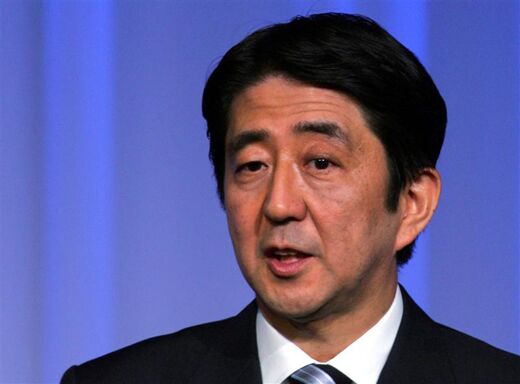
New Era for Japan?
As pundits have it, Japanese Prime Minister Junichiro Koizumi’s chief cabinet secretary, Shinzo Abe, is a “shoo-in” to replace his boss this month. Abe only lodged his nomination for the leadership of the Liberal Democratic Party (ldp) last Friday.
The comparatively young (he turns 52 this month) Abe has had a lightning fast rise to the top in Japanese politics, mainly because of his being the protégé of Prime Minister Koizumi. Though Abe’s rapid rise through the ranks of Japan’s ruling ldp has left little time for him to establish a track record, he does ride somewhat on the coattails of his maternal grandfather, Nobusuke Kishi.
During his term as prime minister of Japan from 1957 to 1960, Kishi—an indicted but untried World War ii Class-A war crimes suspect—steamrolled controversial legislation through the Japanese parliament that revised the existing post-war U.S.-Japan Mutual Security Treaty. At the time, the amendment was so controversial, with Japan still doing penance for initiating the Pacific theater war, that Kishi felt forced to resign his prime ministership.
Nevertheless, grandson Abe has cast himself in the Kishi mold, and it is this attachment to the aggressive policies of his grandfather that is driving Abe’s popularity within ldp ranks. This does not bode well for Japan’s future relations with the United States and with its prime Pacific ally, Australia.
To further cement the view in the public eye that Abe is following in Kishi’s footsteps, he has authored a book describing his vision for Japan. Titled Towards a Beautiful Country, the book confirms his driving zeal to become the most nationalistic prime minister of Japan in at least 20 years and possibly since his grandfather strutted the world stage as leader of the land of the rising sun.
Conscious of ongoing friendly relations with former enemy Australia, Abe has made it known that he intends to work toward an even closer relationship in trade, politics and security with that country. It was his mentor, Kishi, who, in 1957, concluded a trade deal with Australia and made a public apology for Japan’s war crimes against that nation. In response, Australia sponsored Japan’s entry into a principal Asian regional development program of the day (known as the Colombo Plan) and initiated moves to have Japan admitted to membership of the United Nations.
In a similar vein, Abe has stated his intention, upon gaining office, to follow through with discussions to conclude a free-trade agreement and a bilateral security agreement with Australia in 2007.
The utopianist would greet these moves for closer ties between two former enemies as part of global evolution toward a universally peaceful society. The realist, with an eye to history, would have a more skeptical view. The realist is forced to ponder the question, “What happened the last time Japanese leaders led a revival of national spirit in Japan?” Do leopards really change their spots?
The Pacific War of the 1940s, initiated by Japan, ended with the destruction of the imperial holdings of the old colonial powers in greater Asia. Although Japan’s grab for this region’s rich resources of raw materials by aggressive warfare ended in defeat, that access to raw materials has since been achieved, since the war, by trade, aid and diplomacy.
Currently, Japan’s defensive arrangements are largely shored up by the presence of the U.S. Pacific Fleet in the region. However, Japan and the U.S. both recognize that with a rising China and India rapidly emerging as titans in greater Asia, with North Korea’s nuclear saber rattling, and Russia emerging as an energy giant to Japan’s north, something is about to give in these postwar defense and security arrangements.
The U.S. has readily encouraged Japan to deploy an anti-missile defensive shield for its own protection. Japan has known capacity, should it choose, to manufacture its own nuclear weapons within months of a signal to do so. It already possesses a significant military force. The time is rapidly approaching when Japan will, like Germany, cast aside its postwar-penance mindset and assert itself once again as a regional militarily power, unshackled from U.S. dominance. The signs are there for all to see. If we read between the lines, one thing becomes clear: Shinzo Abe envisions this advance for his nation, and intends to do something about it.
Possessing a defensive naval force second only to the U.S. and also the world’s second-largest merchant fleet, Japan is a technologically advanced society that is on the cusp of a grand reawakening of assertive nationalism. Since the mid 1990s, Japan has been a sleeping giant, hidebound by an antiquated economic system that creaked and ground to a halt following decades as a postwar boom-time nation. But, this year, the Japanese economy has shown consistent signs of having turned the corner into more positive territory.
The giant is rising, again.
Shinzo Abe could be just the leader that Japan seeks at this time of reawakening. What will be the outcome of his leadership, with this strong attachment to the nationalist policies of his war-crimes-suspect grandfather? Reviving nationalism will be a key plank in Abe’s policy platform. Both the U.S. and Australia would do well to consider where such a revival may lead.
